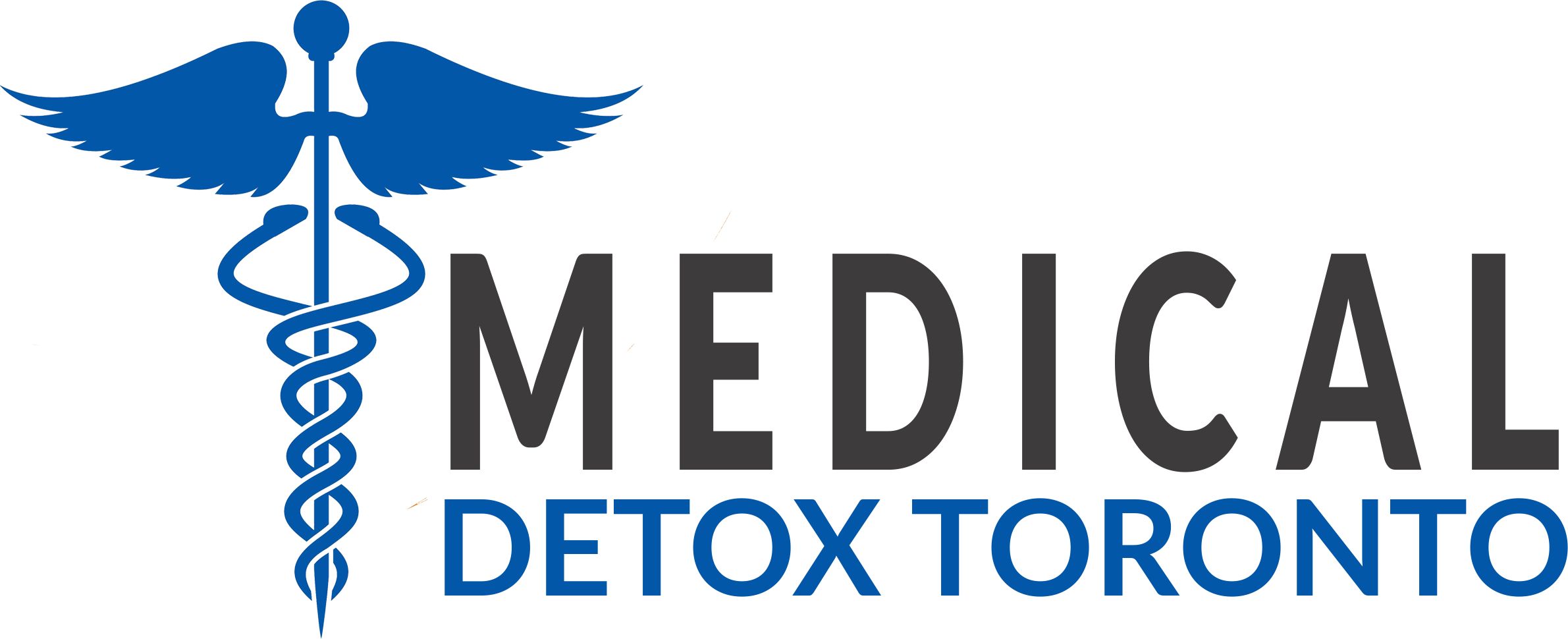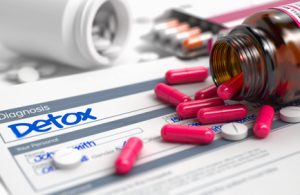
FREE confidential assessment (647) 370-8370
Medical Detox Toronto
What is medical detox and how is it different to rehab?
Medical detox is a step in the addiction recovery process that comes before rehab. While there are people who can go directly to rehab without first going through alcohol and drug detox, it is a necessary process for many people who have developed a physical dependency on the substance they have been using.
When you use drugs or alcohol for the first time, it can have a profound physical or mental effect. For example, it can create a feeling of elation or relaxation, it can have a painkilling effect, or it can generate an impression of superior physical strength. With each subsequent use, you become more and more accustomed to the substance, and you find yourself having to use it more frequently, and in larger doses, in order to gain the desired effect.
While this is happening, your body is getting used to the substance, and in many cases, it gets to the point of not being able to physically survive without it. If you attempt to stop using the drugs or alcohol, your body goes into revolt and you may experience withdrawal effects that are uncomfortable, and sometimes life-threatening.
Medical detox is a way for people with addictions to be supervised by doctors while the drugs or alcohol are working their way out of the system. During this phase, patients are kept comfortable and safe, and protected from the effects of the withdrawal symptoms.
By contrast, rehab is a process whereby people with addictions explore and work to resolve the issues that are behind their addictions. Examples of rehab therapy techniques include individual and group counselling, family therapy, and various forms of art therapy. In order for rehab to be effective, the individual’s physical dependency on the substance needs to be resolved. This is why medical detox is, for many people, the first step in the addiction recovery process.
Do I really need inpatient detox?
Whether you need an inpatient detox program depends on several factors, including the following:
- The substance you are addicted to
- How long the addiction has lasted, and how much of the substance you use
- Your state of physical health, and the presence of any medical conditions
- Whether or not you are taking medication
Some people with mild addictions are able to detoxify themselves at home, with occasional visits to a doctor to monitor progress. Others may benefit from an outpatient detox program, in which they undergo medical treatment during the day and released to go home at the end of each afternoon. This might be a good option for you if:
- Your addiction is not severe enough to warrant round-the-clock medical attention during withdrawal
- You can benefit from the support of friends and family
- You and your doctor feel that you will be able to avoid using the substance you are detoxing from
- You are able to maintain your employment, education and activities
An inpatient detox centre allows for the provision of medical care twenty-four hours a day during the detox process. It is highly recommended for people with severe or long-standing addictions, and for those who are in danger of relapsing if they are sent home in the evenings. Many people who complete an inpatient drug and alcohol detox program immediately enter an inpatient drug and alcohol rehab program.
What happens during detox?
When you arrive at our facility, you will be taken through several steps that include the following:
- Intake. You will meet your assigned therapist, who will take down a detailed history that includes your medical information and the path your addiction has taken. We need this information not only so that we can create a customized detox plan that is right for you, but so we can manage potentially dangerous interactions between the addiction and your medical conditions and/or legitimately used prescription drugs.
- Settling in. You will be shown around our facility and admitted to your room. During this process, items that are not allowed at the facility will be taken from you and stored until it is time for you to leave. Prohibited items include over-the-counter medications and potentially dangerous items.
- Physical examination. A doctor will examine you to assess your current state of health and identify any variables that might affect your detoxification process.
- Detox. The detox process itself is customized for each individual. Some people are encouraged to engage in supervised physical activity, while others may be confined to bed. The withdrawal symptoms that patients experience include anxiety and depression, mood swings, trembling and shaking, a change in appetite and sleeping patterns, difficulty breathing, heart palpitations, fever and panic attacks. Some people with severe addictions experience hallucinations, violent outbursts, and suicidal thoughts. The length of medical detox varies from person to person, but it is typically not more than a few weeks.
What comes next?
For most people with addictions, overcoming the physical dependency is an essential first step, but it is not enough. Almost all addictions are underpinned by issues that need to be addressed in a rehab setting. The circumstances that lead to addiction are different for everybody, and include the following:
- Experiencing or witnessing a traumatic event
- A history of child abuse, sexual assault or domestic violence
- Military combat
- A history of bullying
- Mental illness
- Troubled family relationships
Rehab programs are designed to help the individual explore and resolve these issues, through group therapy, individual therapy, family counselling, and a variety of other therapeutic tools.
People who undergo medical detox without subsequent rehab are at very high risk of relapse, because their psychological dependency on the substance has not been addressed.
For more information about how you can get yourself or a loved one started on the road to recovery, call Medical Detox Toronto today and book your assessment.
CONTACT US
Our Programs




Addiction Therapy After Detox

It is important to understand that medically assisted detox is only the first step toward recovery. By itself, detox does little to halt long-term drug or alcohol abuse. In order to maximize chances of long-term sobriety, addicted people should seek treatment and therapy following detox.
Once a patient is physically able, he should begin attending group and individual therapy sessions. These sessions offer support during and after rehab. Cognitive behavioral therapy can help addicted people identify and cope with triggers that contribute to drug and alcohol abuse.
Group therapy is also an important component of the treatment process. It allows other individuals in treatment to meet in a small group setting that is facilitated by a professional. Individuals within the group are encouraged to share stories of success and to help one another during the treatment process.
Family therapy is often used to help family members deal with the destructive behavior of the addicted person. Family therapy identifies common warning signs and gives families a plan of action on what to do should a relapse occur. It also helps families learn how to be supportive during rehab and recovery as well as find the means to forgive the individual of any past wrongdoings that may have occurred as result of drug or alcohol abuse.
Getting Help for Alcohol or Drug Addiction
Recognizing that you need help is the first step in recovering from drug or alcohol addiction. Quitting alcohol or drugs is incredibly difficult to do alone. Professional treatment and therapy provides the best chance of success for those struggling with drug addiction or alcoholism.
For addiction treatment to be most effective, it should address multiple needs of the individual and not just his or her substance abuse. When seeking a detox facility or rehab center, look for a program that can address your specific needs, such as those offering simultaneous treatment for any underlying mental health conditions, traumas, or other factors that may be contributing to your addiction.